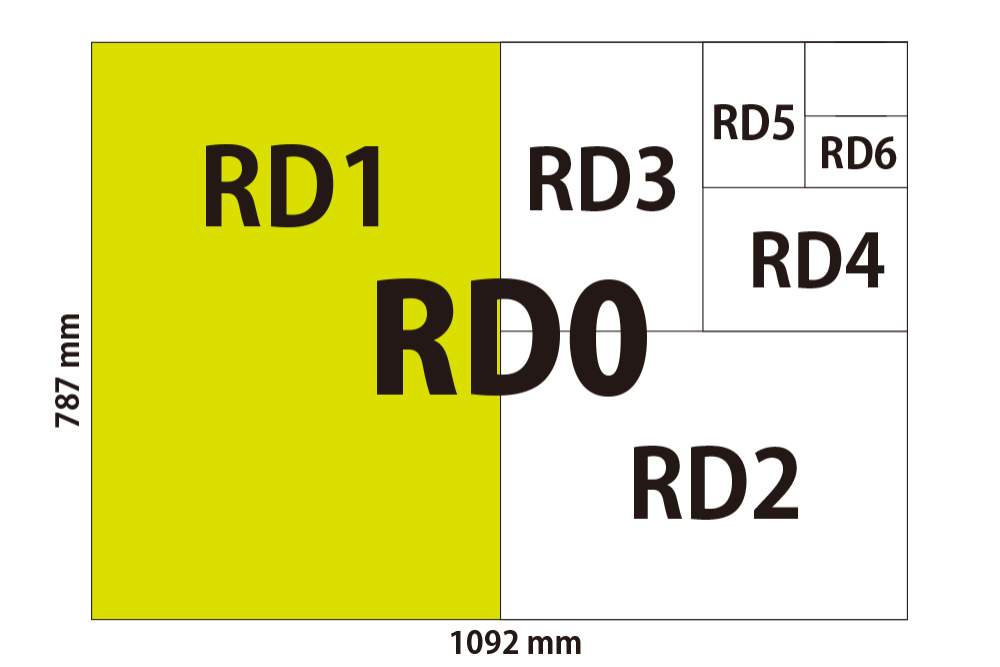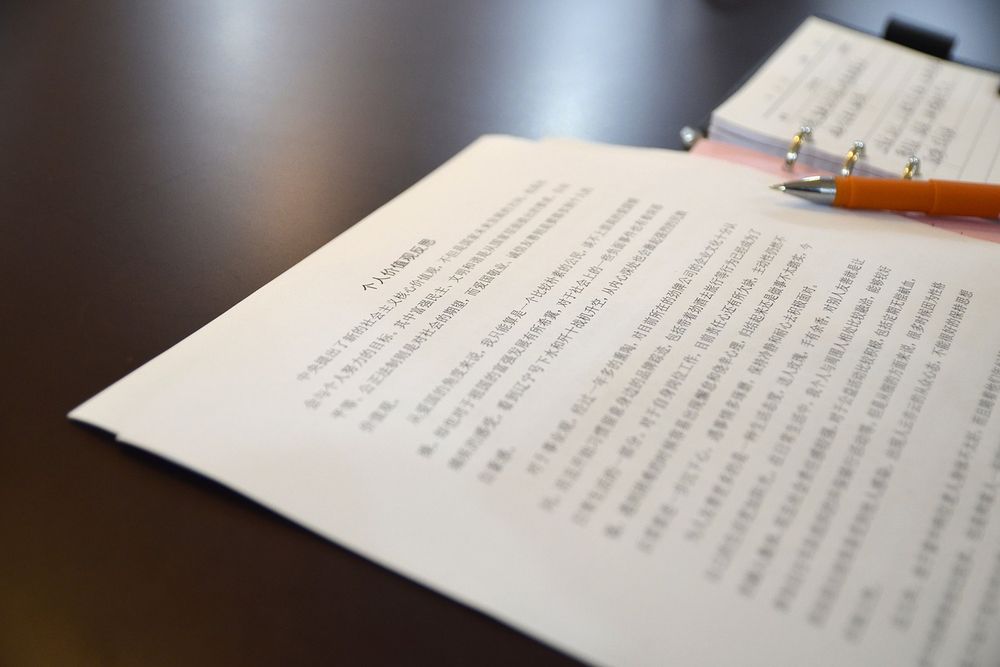Chinese Paper Sizes

| Format | Width × Height (in) | Width × Height (mm) |
|---|---|---|
| D0 | 30.1 x 41.9 in | 764 x 1064 mm |
| D1 | 20.9 x 29.9 in | 532 x 760 mm |
| D2 | 15 x 20.8 in | 380 x 528 mm |
| D3 | 10.4 x 14.8 in | 264 x 376 mm |
| D4 | 7.4 x 10.2 in | 188 x 260 mm |
| D5 | 5.1 x 7.2 in | 130 x 184 mm |
| D6 | 3.6 x 5 in | 92 x 126 mm |
| RD0 | 31 x 43 in | 787 x 1092 mm |
| RD1 | 21.5 x 31 in | 546 x 787 mm |
| RD2 | 15.5 x 21.5 in | 393 x 546 mm |
| RD3 | 10.7 x 15.5 in | 273 x 393 mm |
| RD4 | 7.7 x 10.7 in | 196 x 273 mm |
| RD5 | 5.4 x 7.7 in | 136 x 196 mm |
| RD6 | 3.9 x 5.4 in | 98 x 136 mm |
The Chinese standard GB/T 148-1997, which replaced GB 148-1989, documents the standard ISO series, A and B, but adds a custom D series. This Chinese format originates from the Republic of China (1912–49). The D series is not identical to the Swedish D series. It does not strictly follow the same principles as ISO paper sizes: The aspect ratio is only very roughly √2. The short side of a size is always 4 mm longer than the long side of the next smaller size. The long side of a size is always exactly – i.e. without further rounding – twice as long as the short side of the next smaller size.
| A series | B series | C series | US sizes | US Envelope |
| International Envelope | Photography Paper | Canadian | Japanese | Books |
| Newspaper | Chinese | Billboard | Imperial | Colombian |
| French | Raw | Transitional |


Comments